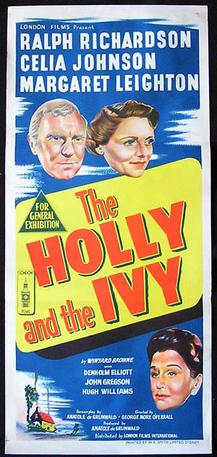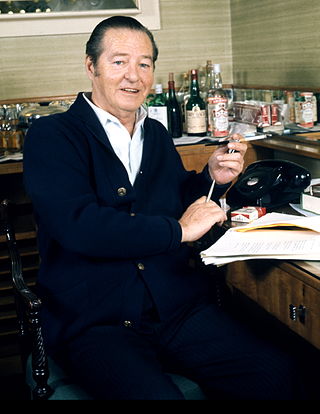
Sir Terence Mervyn Rattigan was a British dramatist and screenwriter. He was one of England's most popular mid-20th-century dramatists. His plays are typically set in an upper-middle-class background. He wrote The Winslow Boy (1946), The Browning Version (1948), The Deep Blue Sea (1952) and Separate Tables (1954), among many others.

Lady Caroline Lamb is a 1972 British epic romantic drama film based on the life of Lady Caroline Lamb, novelist, sometime lover of Lord Byron and wife of politician William Lamb, 2nd Viscount Melbourne. The only film written and directed by Robert Bolt, it starred his wife, Sarah Miles, as Lady Caroline, Jon Finch, Richard Chamberlain, Laurence Olivier, Ralph Richardson, John Mills, Margaret Leighton and Michael Wilding.
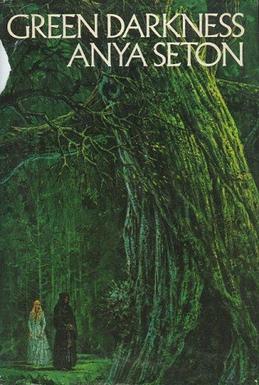
Green Darkness is a 1972 novel by Anya Seton. It spent six months on The New York Times Best Seller list and became her most popular novel.
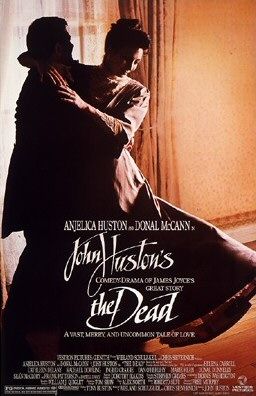
The Dead is a 1987 drama film directed by John Huston, written by his son Tony Huston, and starring his daughter Anjelica Huston. It is an adaptation of the short story of the same name by James Joyce, which was first published in 1914 as the last story in Dubliners. An international co-production between the United Kingdom, the United States, and West Germany, the film was Huston's last as director, and it was released several months after his death.
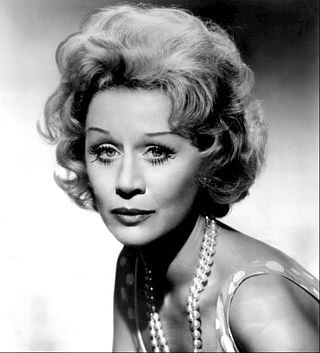
Margaret Leighton, CBE was an English actress, active on stage and television, and in film. Her film appearances included in Anthony Asquith's The Winslow Boy, Alfred Hitchcock's Under Capricorn, Powell and Pressburger's The Elusive Pimpernel, George More O'Ferrall's The Holly and the Ivy, Martin Ritt's The Sound and the Fury, John Guillermin's Waltz of the Toreadors, Franklin J. Schaffner's The Best Man, Tony Richardson's The Loved One, John Ford's 7 Women, and Joseph Losey's The Go-Between and Galileo. For The Go-Between, she won the BAFTA Award for Best Actress in a Supporting Role and was nominated for the Academy Award for Best Supporting Actress.
This is a summary of 1952 in music in the United Kingdom, including the official charts from that year.

Margaretta Mary Winifred Scott was an English stage, screen and television actress whose career spanned over seventy years. She is best remembered for playing the eccentric widow Mrs. Pumphrey in the BBC television series All Creatures Great and Small (1978–1990).

The Winslow Boy is a 1948 British drama film adaptation of Terence Rattigan's 1946 play The Winslow Boy. It was made by De Grunwald Productions and distributed by the British Lion Film Corporation. It was directed by Anthony Asquith and produced by Anatole de Grunwald with Teddy Baird as associate producer. The adapted screenplay was written by de Grunwald and Rattigan based on Rattigan's play. The music score was by William Alwyn and the cinematography by Freddie Young.
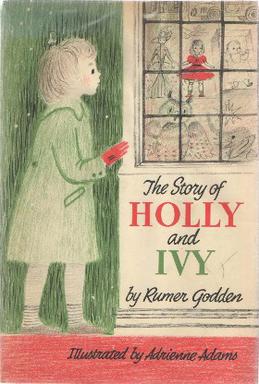
The Story of Holly and Ivy is a 1958 children's book written by Rumer Godden. On first publication it was illustrated by Adrienne Adams, but later editions were illustrated by Barbara Cooney; the British Puffin edition is illustrated by Sheila Bewley. The story treats the simultaneous events of wishing for love, in Ivy, a young orphaned girl, and Holly, a Christmas doll.

Glorious 39 is a 2009 British war thriller film written and directed by Stephen Poliakoff, starring Romola Garai, Bill Nighy, Julie Christie, Jeremy Northam, Christopher Lee, David Tennant, Jenny Agutter and Eddie Redmayne. The film was released on 20 November 2009.
Pamela Margaret Stanley was a British actress who appeared in a number of stage and film roles in Britain and the United States; the role with which she became most identified with was that of Queen Victoria.

Quiet Wedding is a 1941 British romantic comedy film directed by Anthony Asquith and starring Margaret Lockwood, Derek Farr and Marjorie Fielding. The screenplay was written by Terence Rattigan and Anatole de Grunwald based on the play Quiet Wedding by Esther McCracken. The film was remade in 1958 as Happy Is the Bride.
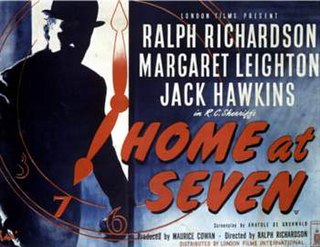
Home at Seven is a 1952 British mystery drama film directed by and starring Ralph Richardson, featuring Margaret Leighton, Jack Hawkins, Campbell Singer and Michael Shepley. It is based on the 1950 play Home at Seven by R. C. Sherriff. The film is Richardson's only work as director. Guy Hamilton was assistant director.
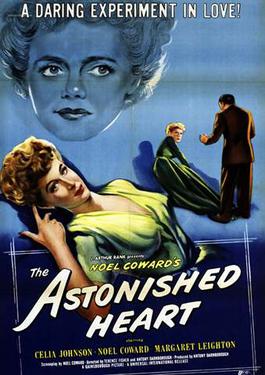
The Astonished Heart is a 1950 British drama film directed by Terence Fisher and Antony Darnborough. Starring Celia Johnson, Noël Coward, and Margaret Leighton, the film is based on Coward's play The Astonished Heart from his cycle of ten plays, Tonight at 8.30.

Dear Octopus is a 1943 British comedy film directed by Harold French and starring Margaret Lockwood, Michael Wilding and Celia Johnson. It is based on a 1938 play, Dear Octopus, written by Dodie Smith. It was also released as The Randolph Family.

Holly & Ivy is a 1994 Christmas album and 16th overall studio album by American singer Natalie Cole. Released on October 4, 1994, by Elektra, it is Cole's first album featuring Christmas music and serves as a follow-up to Take a Look (1993). Cole co-produced the album with American music producer Tommy LiPuma, with whom she had worked on Unforgettable... with Love (1991). Holly & Ivy consists of 12 tracks, including 11 covers of Christmas standards and carols and one original song written by Gerry Goffin and Michael Masser. Cole promoted the album as non-traditional in interviews and live performances.
Fiona O'Carroll is an Irish actress and a cast-member of the popular BBC/RTÉ sitcom, Mrs. Brown's Boys. Fiona is the daughter of Doreen O'Carroll and Mrs. Brown's Boys star and creator, Brendan O'Carroll.
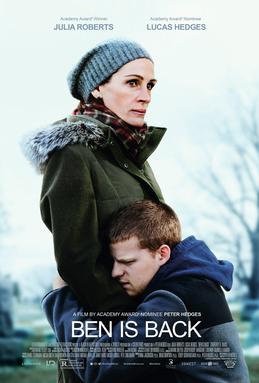
Ben Is Back is a 2018 American drama film written and directed by Peter Hedges, and starring Julia Roberts, Lucas Hedges and Courtney B. Vance. The plot follows a mother who tries to help her addict son after he returns home from rehab.
During the Reign of the Queen of Persia is the first novel by American writer Joan Chase. On its publication in 1983 it won the Hemingway Foundation/PEN Award.

The Holly and the Ivy is a 1950 play by the British writer Wynyard Browne. A vicar attempts to deal with the various problems of his family as they gather for the Christmas period.
